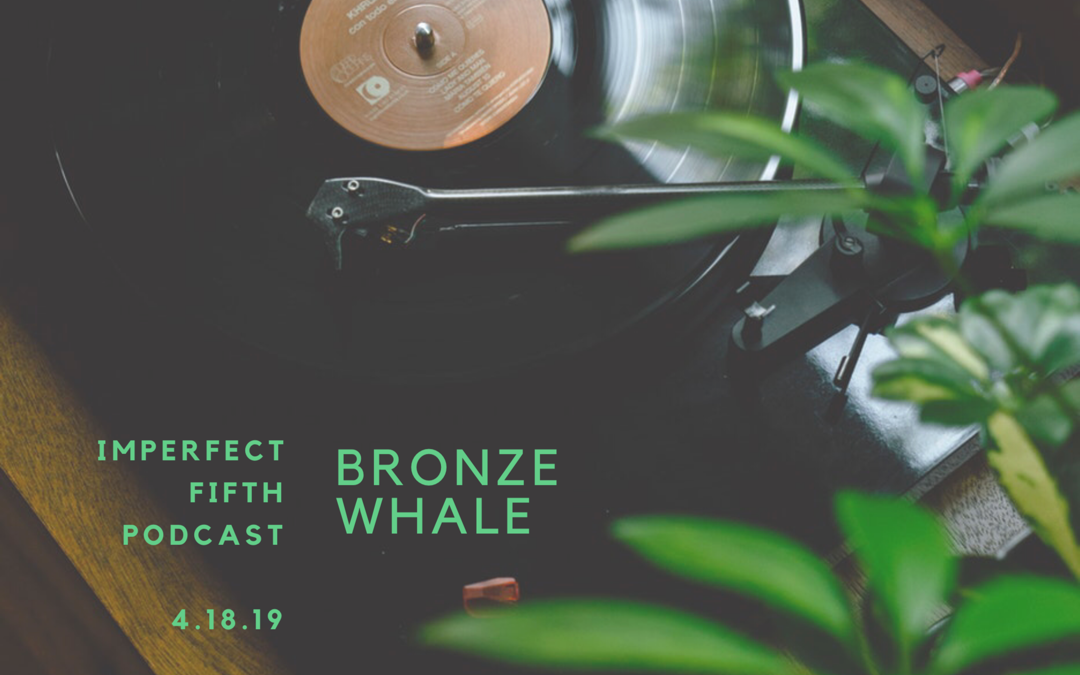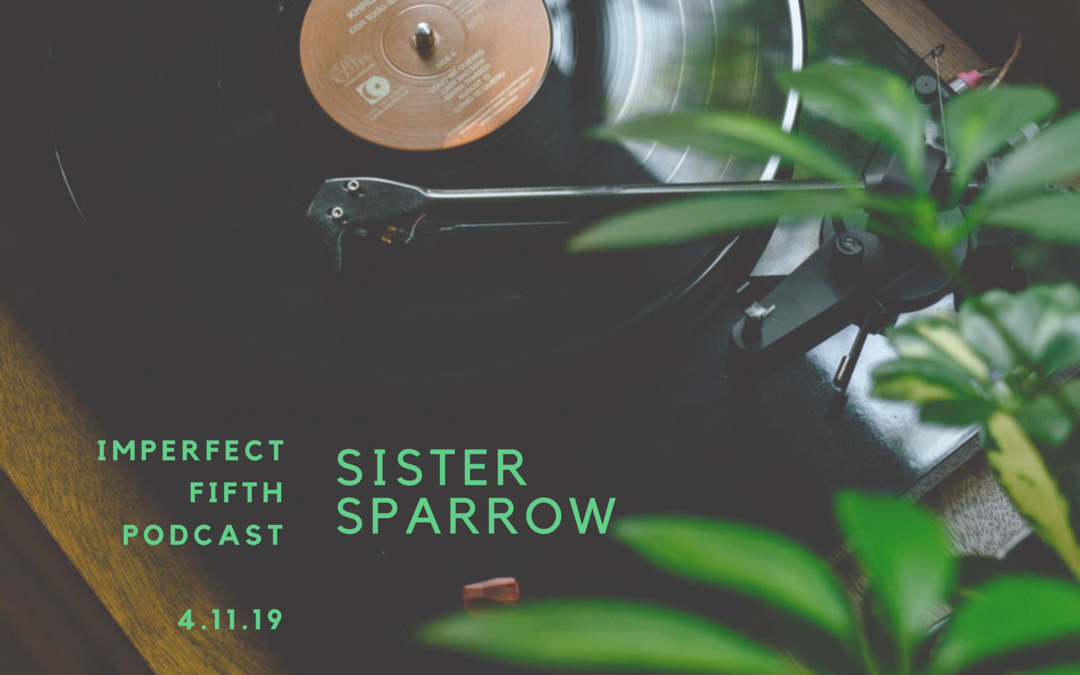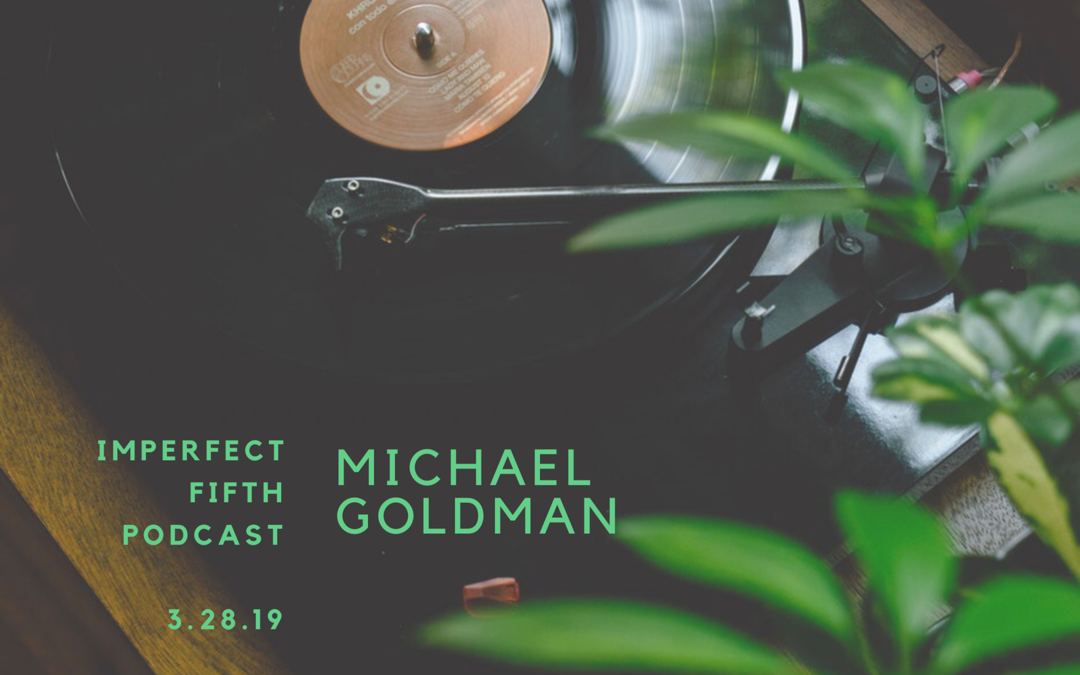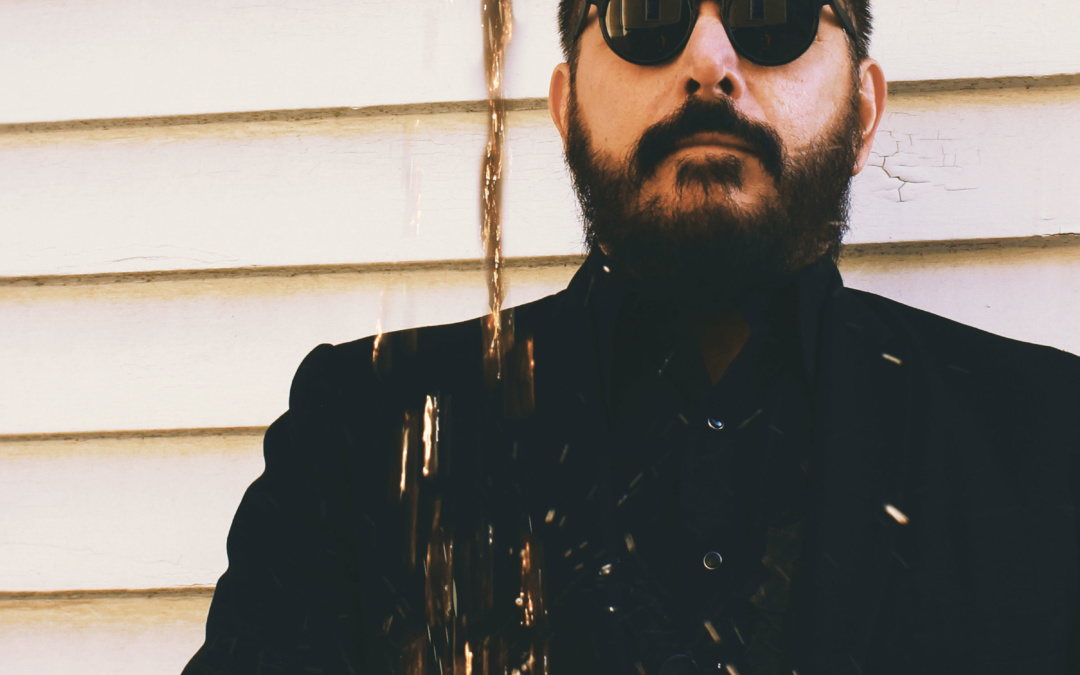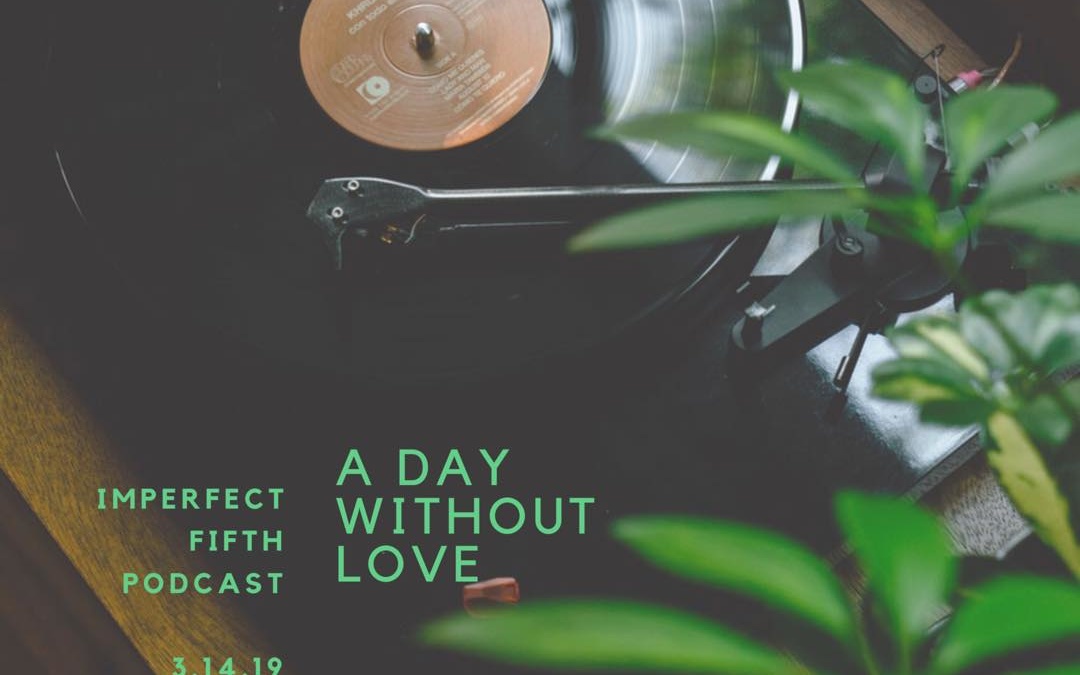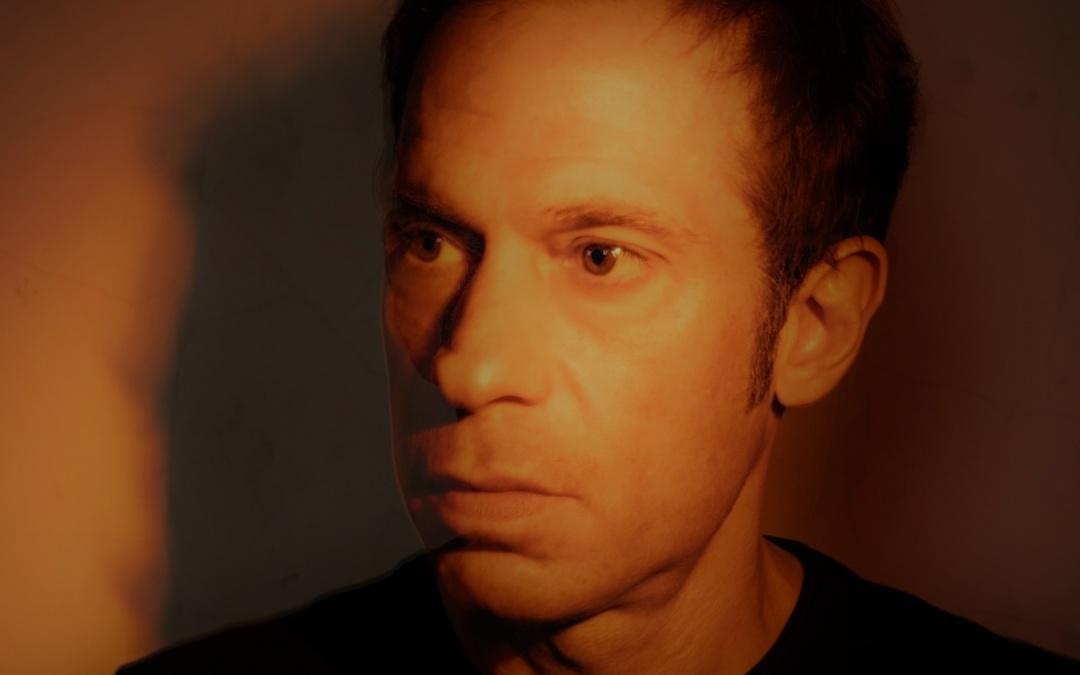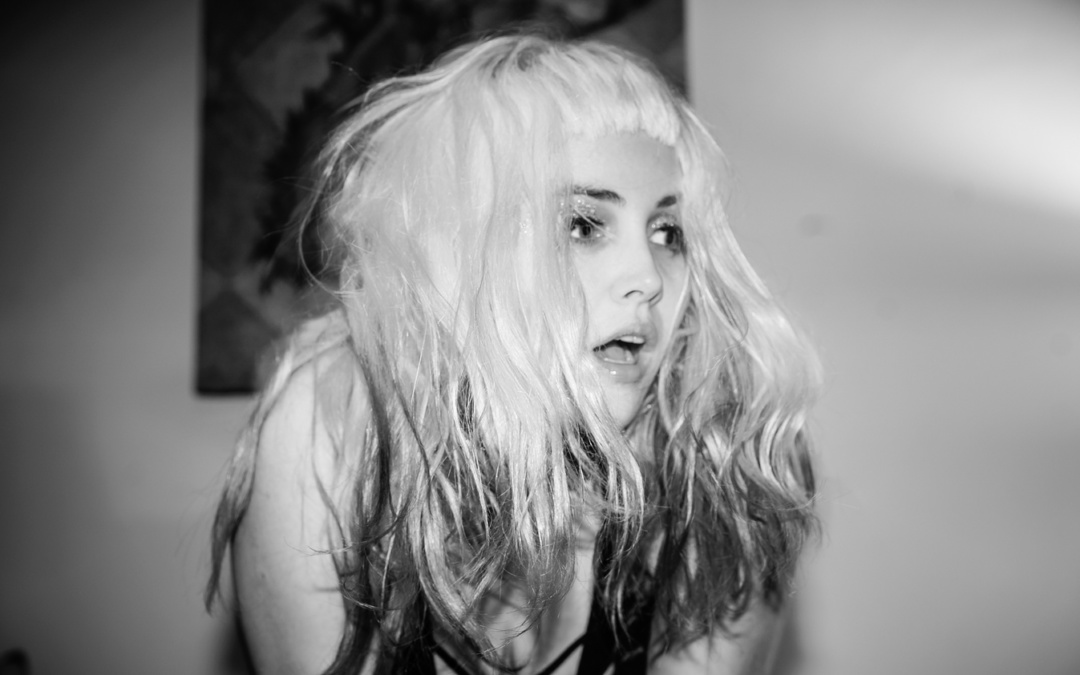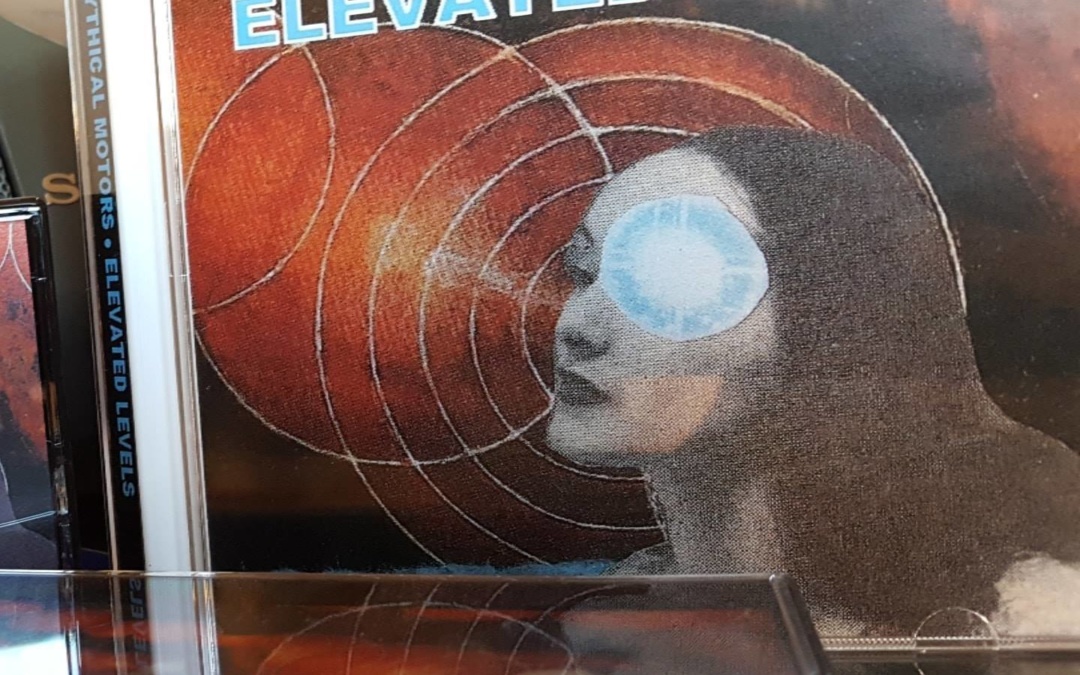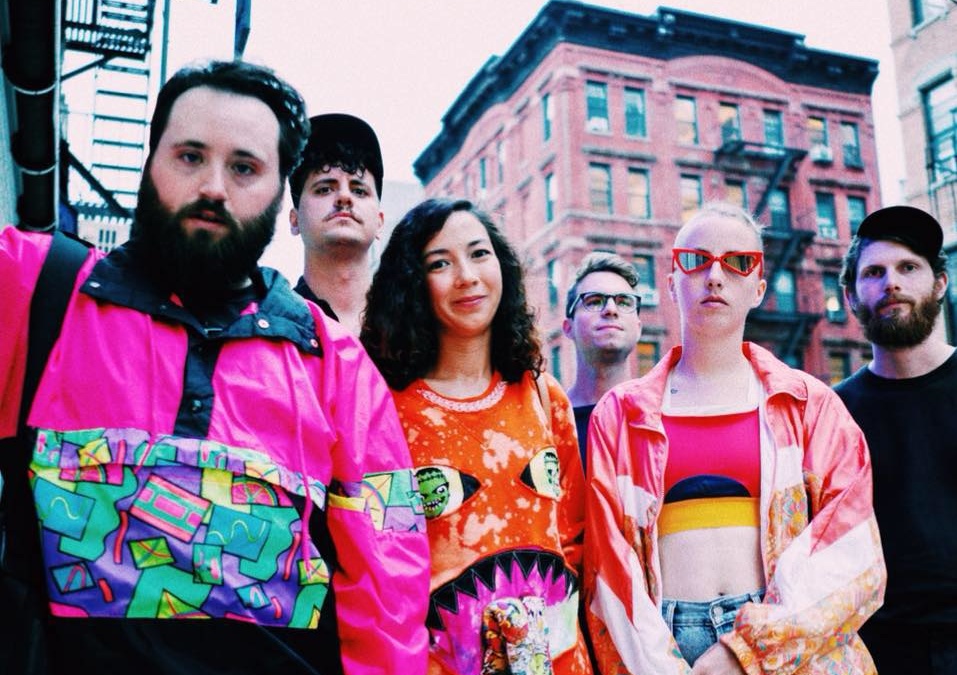
by Meredith Schneider | Apr 18, 2019 | 5 to 7, Featured
On today’s episode, we sit down with electronic musical duo Bronze Whale to talk about their evolution in the industry and the impact they’ve made on their genre. Of course we also carved in some space to talk about Sasquatch and other creatures of myth.
0:00 Intro
0:11 EZVisibility.com
0:22 Dbl-take.com
0:33 imperfectfifth.com/merch
1:03 Aaron Jaques Intro
1:52 Benny Alley Intro
2:49 Beatles, Chopin
3:45 John Denver
5:05 Turntable.FM
7:29 Austin, TX
9:08 Plush
10:53 “Cruising”
16:41 The Shape of Things
19:46 SPLICE sample pack
21:52 Sasquatch
25:34 Aliens
27:37 Flat earth theory vs. Hollow earth
30:02 Alex Jones
___
Keep up with Bronze Whale here.

by Meredith Schneider | Apr 16, 2019 | 5 to 7, Featured
Today, we get the unique pleasure of sitting down with Arleigh Kincheloe, the brainchild of Sister Sparrow & The Dirty Birds. We talk her latest solo album GOLD, growing up in a musical home, and family. She was so much fun to speak with! Trust me, you don’t want to miss this one.
0:00 Intro
0:11 EZVisibility.com
0:22 Dbl-take.com
0:33 imperfectfifth.com/merch
1:02 Arleigh Kincheloe Intro
2:14 Emmy Lou Harris | Bonnie Raitt
5:04 Growing up in a musical home
6:31 Tour life
8:27 Pre show rituals
12:13 GOLD recording process
16:31 “You’re My Party”
17:51 “Ghost”
19:48 Superpowers
23:04 Spring Tour
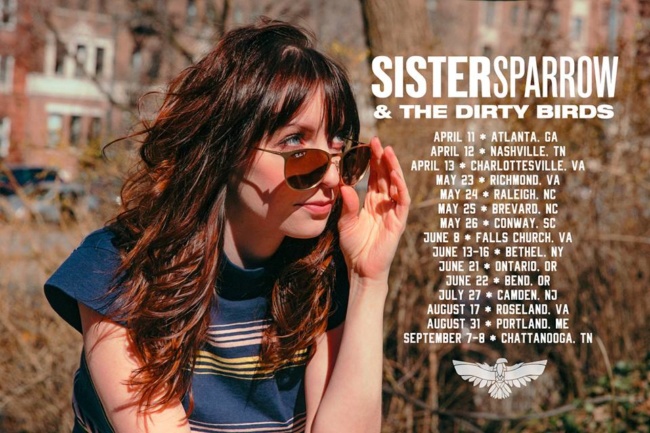
Keep up with Sister Sparrow here.

by Meredith Schneider | Mar 28, 2019 | 5 to 7, Featured
Today, we sit down with Los Angeles-based musician Michael Goldman, who spearheads his own musical project NONA while being the bassist for AWOLNATION and hosting his own podcast called In The Band.
0:00 Intro
0:11 EZVisibility.com
0:22 Dbl-take.com
0:33 imperfectfifth.com/merch
1:03 Michael Goldman intro
1:46 Royal’s in Louisville
2:52 Chasing Kings
4:02 Crosby, Stills, & Nash and The Beatles
6:25 Volleyball
8:02 NONA
10:52 In The Band podcast
15:20 “I’m Not Trying” {{intro to podcast}}
16:42 Upcoming album
19:20 AWOLNATION
22:46 Conspiracy Theories
28:04 Aliens
31:05 Sasquatch
32:35 Rugrats
34:50 Family

by Phlis | Mar 28, 2019 | 5 to 7
On April 5th, Drunken Prayer (Morgan Geer) will release his latest full-length, Cordelia Elsewhere. We took a few minutes to chat with him about his evolution as an artist, superstition, and the new album at length. Check it out below!
___
For everyone in Europe we find it hard to grasp the sheer size of the US, as a touring musician when you do a coast to coast tour of the USA just how long does it take and how does the touring experience differ from other countries?
It takes about 5 days to comfortably drive from coast to coast. I’ll be playing maybe 10 shows on the way to the west coast. It’ll take me about 3 weeks to get to LA from Asheville, North Carolina. In that time I’ll be stop in Austin and Albuquerque to rehearse two different groups of musicians for local shows. I could do it faster but on long tours like this it keeps me sane to stop and watch a few sunsets.
You will soon be releasing Cordelia Elsewhere, tell us a little bit about your fifth album.
I had a lot of music but the lyrics were a little shaky. After the 2016 presidential election I found a voice for the record though. This is the closest to a concept record as I’ve done in that regard. Some songs came very quickly, others, like “Rubble and Dust”, required a little thought. I go down a lot of rabbit holes lyrically and have to reel myself in sometimes.
Superstition forms part of the background behind Cordelia Elsewhere, why did you choose superstition as part of the basis of the album?
I’m not sure I consciously chose any superstitious themes. I brood on what lies behind the veil and the unexplained so it’s natural that what I write about. Some of those rabbit holes are filled with me writing without thinking and reflecting afterwards.
There are certain places in the world where superstition is something very big and they truly believe the tales, do you have a certain favourite superstition?
I think wet bread is bad luck.
I come from an Irish Catholic family – apparently you’re supposed to bury a statue of St. Joseph upside down in your yard, under the for sale sign, if you want to sell your house.
They say you should never meet your heroes, but what was it like when you met one of yours Tom Waits?
I wanted to throw up. It was surreal because it came at a time when I was listening to him more than usual. Whenever we talked I would walk away nauseous. I’ll never forget the way my name sounded coming out of his mouth. It was a peculiar feeling.
Your music keeps to them authentic American roots, what is the importance to you of keeping those roots imbedded in your music?
I don’t know that it is that important. Neither is speaking English but it’s what I know. Coming from a musical family that veers toward traditional jazz, country and blues, it’s a familiar voice that comes naturally. I try to stay insulated without isolation. It keeps me open but grounded. When I allow myself to follow every whim I turn into a gross mess.
Why have you decided to have the homesick theme in some of your songs, what makes you so good at conveying these feelings?
I grew up a little lonely sometimes. I was the only child of a single working mother and we moved around a lot. That left me with competing feelings of restlessness and a desire for a forever home. I identify with sad songs.
Why do you feel that Cordelia Elsewhere is your strongest album as Drunken Prayer to date?
It was recorded by a gifted engineer, Brian Landrum, and mixed by the great Mitch Easter from Let’s Active. We played the songs one after the next in a one room backyard studio with only necessary overdubs. The songs on this one came pretty easily all in all as well. That’s usually a decent barometer. When I have to labor too hard over something, it usually sounds fussy. I don’t think it’s a cluttered record.
The whole way in which artists make music and how people buy and listen to music has changed drastically technologically both for the good and the bad. Do you as an artist embrace that technology or do you prefer the older ways, and why?
More and more songs are heard as singles, separated from the album, like the early 45s. That idea has kind of come full circle now that you can upload singles directly to online distributors like CDBaby. I like good sequencing so I tend to buy entire albums, usually vinyl records. Not because they sound better – I’d never know the difference on my cheap system – but I like the machinery and the tactile quality of 12” records and the big art.
Also with the technology comes freedom for you as an artist, long gone is the time when a record label tells you what to do. What do you think are the negatives of this on the music industry as a whole?
There’s a lot more noise to sift through. I use streaming services, especially on tour, but sometimes listening to music in my bubble or personalized playlists gets old. A good radio station is a curator you can trust.
Every place has a different feeling musically, but yet your music is American. Are there certain songs which musically it could come from a certain place in America and if so which songs?
“Four Leaf Clover” started off more as a cajun song. It’s some of the prettiest music there is.
“Rubble and Dust” reminds me of the desert even though it name drops Bend, Oregon. It ended up with what I’d consider a Topanga Canyon sound. That was a happy accident.
Your father and your mother father played Jazz and Dixieland, how has this affected you musically?
For as many generations as anyone can recall, everyone on my mother’s side was some sort of musician. So being a musician of any level of success was an honorable pursuit. There was a point when I thought about maybe going into theology or law but it seemed wrong not to follow the musical wind at my back.
Thank you so much for giving Imperfect Fifth this interview, anything you would like to add?
If you go down to the woods today, you better not go alone.
___
Keep up with Drunken Prayer here.

by Meredith Schneider | Mar 14, 2019 | 5 to 7
Happy Pi Day! We are over here celebrating with some apple pie and basketball, but first thing is first: a new podcast episode. For our 4th installment, we sit down to chat with Philadelphia-based A Day Without Love (Brian Walker) about the way he serves his community, his music influence, and, of course, anime.
0:00 Intro
0:11 EZVisibility.com
0:22 Dbl-take.com
0:33 imperfectfifth.com/merch
0:56 Brian Walker/A Day Without Love Intro
2:18 Influence (Anthony Green, Bright Eyes)
4:02 “You Said”
6:15 “Fashit”
9:07 Songwriting process
14:45 The Storyteller’s Tour
16:53 Food
21:20 “People I Meet and the Food I Eat”
22:33 Philadelphia DIY Collaborative
28:39 Aliens
29:58 Anime
34:33 Patreon
Keep up with A Day Without Love here.

by Phlis | Feb 27, 2019 | 5 to 7
Cole Guerra has crafted a sound that balances on the edge between progressive rock and pop with latest project I Am Casting, a musical entity we have been captivated by since premiering “Clay” last year. Amidst the release of the project’s debut album, we got a few minutes to sit down and dig in with Guerra on everything music. Check it out below!
There was a time when you were studying and performing, were there any points where the focus of your studies intermingled with your song writing?
That period was well before writing any of the songs on Carnival Barkers. The overlap would have occurred primarily during the writing of an album called Scarves & Knives, which I put out under my own name years ago. I don’t believe that the focus of my studies really made its way into contemporaneous songwriting material, though I can look back and recognize that I was, at times, working some psychological stuff out (about myself) through my lyric writing.
On the other hand, my exposure during grad school and beyond to issues central to clinical psychology and social psychology has pretty clearly influenced my lyrics over the past couple years, while writing the tunes on Carnival Barkers.
Does your background in psychology help when writing lyrics?
In general, I’m sure that the psych background funnels me towards certain subject matter, even if I’m not altogether deliberate or conscious about this, and that it then informs the perspective I have on the chosen subjects. The psych background definitely influenced how I approached the material on Carnival Barkers. It was 2016 when I began working on the album, and from the start of lyric-writing I knew my framework was to write a collection of tunes that would observe, from various angles, something about the psychology of the political moment. Most of the songs offer a take on toxic influencers and/or their impact, both on those who ‘buy in’ to the message and those who do not. For example, I think of ‘Wolf’, ‘Charmer’, and ‘Lullaby’ as Pied Piper-like riffs, thematically. I view ‘Helpless’, ‘Muggers’, and ‘Seams’ as fragments of possible responses by those upended and left feeling powerless in the wake of a malignant carnival barker. ‘Flood’ and ‘Window’ are songs about the political exploitation of fear and prejudice.
Carnival Barkers will soon be released, “Flood” was the first single released from your new album. What is the background behind “Flood”?
‘Flood’ was one of the first songs written for Carnival Barkers – it was penned in mid-2016. During the run-up to the election, I was disgusted, like many, by how often Trump negatively framed non-white and non-European populations and made racial and ethnic distinctions increasingly salient. He was explicitly signalling to his political base that they should care about race and ethnicity differences, and that those outside their racial and ethnic ingroups (here’s the social psychology influence I referenced above) were clear threats. In essence, he seemed to have a strategy of stoking and then exploiting people’s fears about those in outgroups. We’ve seen this play out over the past couple years – in, for example, the alarmism about the “Caravan” or with the just-declared “national emergency”. ‘Flood’ tries to get at aspects of this, as does the song ‘Window’.
The video for “Flood” used footage of historical events that ties into the song, of the footage you used which part sums up “Flood” the most?
The juxtaposition of (a) clips from a 1957 promo piece by Redbook magazine that depicted tranquil white suburbia with (b) clips depicting the aggression and hostility of white women and men towards the Little Rock Nine during that same year.
After Scarves & Knives you kind of disappeared, what were you doing in that time?
At the time of releasing Scarves & Knives, and then touring in support of it, I was ‘on leave’ from my clinical psychology program. I had a decision to make after touring – do I finish the degree or commit full-time to music? I was invested in both possible paths and knew I wanted to wrap up the doctoral degree and keep the door open to becoming a practicing psychologist. I re-engaged in the grad program, which was a pretty immersive thing involving dissertation writing and clinical work, followed by an internship and subsequent ‘post-doc’ experience. After that, I jumped into developing my clinical psychology practice. During that stretch, whenever I tried to write music, it just felt kind of painful – like if I couldn’t do it full-on, why bother? Hard to explain, really. I somehow ended up going years without doing anything music-related. Most of that time, I didn’t even touch a guitar or keyboard. It wasn’t until 2016 that I began writing again.
Is there any overall advantage from working primarily from your home studio?
Yes, absolutely, especially as I’ve come to view tracking itself as an important part of my songwriting process – things are pretty iterative at this point, so I benefit from having the ability to easily go in and adjust, rinse, repeat, etc. I guess I could just call what I end up with a ‘demo’ and then go to a full-fledged studio, but the home studio is sufficient for me to obtain most of what I’m after – there are exceptions, and I did leave the home space to record some stuff.
What element of Carnival Barkers are you most proud of and why?
Probably that it feels like an album. There are thematic threads that connect the tunes, as I was describing earlier, and I think there are musical threads that do the same (arrangement choices, tonally coherent). Hopefully, if a listener takes in the full LP in a single gulp, there is a “whole is greater than the sum of its parts” type impact.
You studied piano as a child, how did this set you up musically for your future musical endeavors?
I’m sure that early exposure to an instrument was one of the things that contributed to a love of music, along with extensive music-listening as a young kid. I’m also pretty sure that playing the piano made it easier to learn and play the guitar, which I picked up just after high school. This is conjecture, but maybe the most significant impact of playing an instrument as a young kid was that it introduced me very early on to the idea that one’s experience with music can be that of an active participant.
What was it about Richard Buckner’s Since that captivated you so much?
Just about everything, really. Chord progressions and melodies that grabbed me immediately and then somehow continued to grow on me after a ridiculous amount of spins. The sound itself – dry vocal upfront, immersive + emotional musical beds. The tunes cohere as an album, and yet there is a great amount of variability in song tempos, tone, structure, and length. I usually don’t weigh lyrical content that greatly in my music preferences, but Buckner’s lyrics on Since are just incredible. And lastly, the tunes seemed so specifically him – I didn’t have a clear sense of ‘influences’.
Since also introduced me to the work of producer and bassist JD Foster, who had produced the LP as well as Bucker’s preceding album, Devotion & Doubt. A few years after the release of Since, I invited JD to a show I was playing in NYC – the conversation with JD after that gig eventually led to the making of Scarves & Knives.
Why did it take a text from Ian Schreier to get you making music again, had you not thought of your music before that point?
There was something motivating about re-engaging with people I’d worked on music with in the past – Ian had mixed Scarves & Knives and been involved in some of the recording as well. Also, quite frankly, it was probably that the messages from Ian over a couple months, along with some other input from musicians I respect a lot, helped to build up some lost confidence. The initial communication from Ian led to a couple meetings at the studio where he typically works, and to me taking a plunge on buying some home recording software/hardware – I’d never had any recording gear previously.
When creating music for Carnival Barkers it was the lyrics that came second, what is your usual creative process of writing?
Lyrics have always come relatively late in the process for me. Frankly, as a listener, the music (the chord progression, the melody, the texture/sound/feel, etc.) speaks to me far more than does any lyric. A bad lyric can put me off, but I’ll listen to a great-sounding tune with middling lyrics. A good lyric is like a bonus of sorts, icing on the cake.
Though I’ve always written music before lyrics, the creative process did change quite a bit for Carnival Barkers. Prior to CB, I’d write the progression + melody + lyric while sitting with a guitar or at the piano, and think about arrangement and texture after the song was, in essence, ‘done’. With CB, the home recording setup and software enabled me to write and record percussion (and other) parts in tandem with the keys or guitar, and the rhythm and ‘texture’ tracks ended up influencing my progressions and melodies to a degree I never would have predicted – I really prefer this newer approach. As I start playing with a vocal melody over a progression I’ve already written and recorded, a lyrical idea or theme will sort of emerge – usually a phrase or two grab me and then I shape the remaining lyric accordingly.
Thank you for giving Imperfect Fifth this interview, is there anything you would like to add?
No, other than thanks for expressing interest in the album!
___
Keep up with I Am Casting here.

by Phlis | Jan 29, 2019 | 5 to 7
Southern California-based psych/folk musician Elizabeth le Fey has been making beautiful strides with her music under the moniker Globelamp. We’ve been bedazzled by her presence ever since 2014’s Star Dust entered our lives, and watching that progression has been an absolute pleasure over the years. Luckily enough, we got a few minutes to speak with the masterful le Fey about her music, and we also got a few other fun questions in.
Romantic Cancer is your most stripped down album to date, why did you decide on this for your third release?
I wanted to finally put an album out that sounded closer to how I sound live. When I perform live, I play alone. Although I love experimenting in the recording studio, I thought it would be good for Globelamp to have an album in my discography that was true to what the roots were of my music making – guitar, piano, and me.
You recorded Romantic Cancer in Bohemesphere Studios not far from Woodstock, which is a name synonymous with music. Did any element of Woodstock appear in your music?
Yes I think the elements of Woodstock were in my music even before I went there so it was extra cool to be inspired by the actual location of Upstate NY. Growing up, there is so much mythology around Woodstock that if you are a musician, you probably have romanticized it.
Your new album focuses on how we pull ourselves back together again after a breakup, how would you hope this would help and inspire people who are just going through a breakup?
I hope this album would encourage people to love again even if they have been hurt before. I hope I’m not the only one who relates to the emotional low of “lowest low” haha. I think that sometimes you don’t realize you are romantic until you date someone who is afraid of romance or love. Or maybe you are that person who fears love because of fear of abandonment or hurt. This album could be for either person in that scenario – the hopeless romantic – or the closed off emotional shell who secretly longs for love.
How did Romantic Cancer lead on from The Orange Glow?
The Orange Glow in my mind is more a psychedelic dark forest fairy tale. Romantic Cancer is more of a journal entry exposed.
You are a fan of British folk music of the 60’s, what is it about the music of that era and place that influence you so much?
I think I love the minimalism of it and the raw talent that was around in that time period. Now people can hide behind so many effects in music, it’s hard to tell who is actually creating what. I love the British folk music of the 60’s and how they tell stories and create a whimsical atmosphere with their words and phrasing.
You recorded a few songs on Romantic Cancer in just one take, what was it about the song and the emotion of the song that felt right on the first take?
I think it’s because I had practiced the songs so many times and envisioned how they should sound so it was easy to just bust some of the songs out. Of course people recording with you always want to add more, but in my mind, I already knew what some of these songs sounded like and I had a very clear vision of it. There is something powerful in recording one take of a song when you just KNOW you got it.
Why was love such an important subject for your new album?
Because I used to think that showing emotions and being vulnerable was weak but these last few years I realized that it is actually strong to say how you feel – because most of the time people can relate to those things the most. We all know what it feels like to fall in love or get our heart broken.
James Felice joined you on Romantic Cancer, what was it like to work with him as you are a fan of his music?
It was amazing and a total honor. I am a huge fan of the Felice Brothers and I think James Felice is so talented and he is also a sweetheart. I love the additions he added to the album. I can’t even imagine “Blinded” or “Black Tar” without him now.
When you wrote “Blinded” you wanted it to have a synth-pop sound, now I’m a big fan of synth-pop so what bands would have influenced you?
Hmmm I’m not really sure. 80’s stuff and the song “I wish You would” by Taylor Swift. Kinda a random answer but the backup vocals on I wish you would made me want to write a song like that (didn’t happen) but I kept imagining the vocals on “blinded” going “you and me you and me” over and over again the way Taylor goes, “I Wish I I I wish I II wish II I wish you would”
You speak a little bit of German and have visited Germany, what is it about Germany that is so magical or draws you there?
I guess their creepy history and the actual land, it feels magical. Growing up I always thought German was the ugliest language and had no desire to visit Germany, but after being there, I changed my mind. My uncle is a professional trumpet player in the Bonn Symphony Orchestra so I have had the pleasure of spending a good chunk of time in the country. I have always been fascinated by fairy tales and the Grimm’s fairy tales are German. When I was a student at The Evergreen State College I also took a course called “Blood and Beauty; the study of Germanic paradoxes of their love of mystery and order”. It was a really intense class. I love how Germany is helping the refugees from Syria, especially with the German’s dark past. My uncle has a whole Kurdish family from Syria living with him. They have their own house on his property. I feel very blessed that I was able to become such good friends with the Kurdish family. Since none of them could speak English, I had to get better at German. I actually wrote a song about them, and refugees in general, that I cut from Romantic Cancer. It didn’t fit the theme and I plan to put on the next album.
What do you feel is your most ethereal song you have ever written?
Wow hard question. I guess it matters if I am performing it or listening to a recorded track. Faerie Queen?
What do you feel are the most important elements of your music?
The feelings, the words.
____
Keep up with Globelamp here.

by Meredith Schneider | Nov 28, 2018 | 5 to 7
Chattanooga, TN-based power pop/garage band Mythical Motors – comprised of Matt Addison, Mike Brown, Brad Smith, & Johnny Wingo – might be gearing up for the release of their new album, but we were a bit impatient. So we caught up with Matt briefly to chat about what’s to come, the mystery of Bigfoot, and so much more! Check out the fun interview below!
What was your first musical memory, and do you think it has any bearing on who you are as an artist now?
Matt Addison: I’m not sure if has an impact on me now, but I have a memory of being around 4 years old, and running around and trying to make up songs. I think I had been watching The Muppets on TV, and I wanted to make up a song about the characters I had seen. I didn’t attempt to write a proper song, however, until 10 years later or so.
Do you think being from Tennessee has any bearing on your sound?
Matt: Probably not. In high school, I discovered indie bands like Guided By Voices, Sebadoh, Superchunk, Pavement, etc. There wasn’t a lot of awareness in Tennessee of those types of bands, so that just meant I had to dig a little deeper to discover new music.
You have such an interesting blend of influence in your sound. We honestly feel transferred back in time when we listen to your work. What made you choose to go in this direction with your music, as a team?
Matt: I think it occurs somewhat naturally when you’re a fan of a wide range of music. We’ve all been huge fans of rock music for many years, and we celebrate what Robert Pollard (of Guided By Voices) calls the 4 P’s of rock – pop, punk, prog, and psychedelic.
Elevated Levels was released last month. What made you choose to include 22 songs?
Matt: Our last album, The Life Stage, had 26 songs, so I had originally planned for the follow-up to be much shorter. But, I ended up with around 30 songs or so. So, I chose songs from that group that flowed well together, and it seemed to work.
What’s the most integral track on the album for each of you?
Johnny Wingo: “Exalt The Highway”
Brad Smith: “Endless Distance of Belief”
Mike Brown: “Endless Distance of Belief”
Matt: “One Seventh Of A Shadow.”
“Shape Shifting Nightmare Celebration” is one of our favorites. What inspired that track, specifically?
Matt: “Shape Shifting Nightmare Celebration” is one of the most unusually structured songs on the album, and was probably inspired by Robert Pollard’s solo material. He has a penchant for writing songs that are inspired by progressive rock, with very unconventional song structures. So, I was attempting to write something in a similar vein, where the song does not follow a predictable verse/chorus structure. The song’s coda was even taken from a completely separate recording, and added in later.
What’s the recording process like for you guys? Does it start with a hook? Are the lyrics all written out first? Do you just play and sing until something makes sense?
Matt: I have several different methods for writing and recording. I’ll usually start with a riff or a finished guitar instrumental, and try to write a melody over that. Then, I’ll write lyrics that fit the melody. Other times, the lyrics come first, but I usually start the process with a song title in mind. I keep an ongoing list of titles, and I find them to be a constant source of inspiration for songs. Another method that I’ve developed recently is to attempt to write a melody for a complete set of lyrics. I’ll then record the song A Capella as a reference, and then complete the song by assigning a chord progression to it later. I find this method particularly exciting. It’s fun and easy.
Any fun anecdotes about the recording process for Elevated Levels?
Matt: Actually, the first thing that comes to mind was not fun at all. The hard drive on my 16 track recorder crashed during the recording of the most complex song on the album, “Over Caravan Park.” I probably spent more time on that song than anything else I’ve written, and once I purchased a replacement machine, it had to be re-recorded from scratch. Not fun. But, it worked out, and the version that appears on the album is the second attempt.
If you could choose any movie or TV series to have your music placed in, which would you choose and why?
Matt: The Man In The High Castle or The Handmaid’s Tale would be pretty incredible. I’m a big David Lynch fan, so it would be amazing to be included in one of his projects.
If you could have your dream rider list, what would be included on it?
Matt: Beer, maybe some tacos. We’d be happy to just have a rider.
Calzones or pizza? Substantiate your claim.
Matt: Pizza. I mean…it’s pizza!
Do you believe in Sasquatch? Why do you think we should or shouldn’t?
Matt: I don’t know much about Sasquatch, so I have to defer to the wisdom of the late Mitch Hedberg on this one. He said, “I think Bigfoot is blurry, that’s the problem. It’s not the photographer’s fault. Bigfoot is blurry, and that’s extra scary to me. There’s a large, out-of-focus monster roaming the countryside.”
___
Keep up with Mythical Motors – and maybe Bigfoot – here.

by Meredith Schneider | Nov 27, 2018 | 5 to 7
As a music journalist, you’re never quite sure what interviewing a band will get you. Will they be awkward? Will they provide good insight, or just one-word answers? There are questions that plague your mind leading up to it. And it’s those incredible storytellers that spin their lyrics so well that seem to come out of the woodwork and really make you laugh. This proved true with Chicago-based art rock/psych pop collective The Curls. In fact, a full giggle fest ensued, and you’ll see why below. So take some time to enjoy this one. It’s well worth it!
What was your first musical memory, and do you think it has any bearing on who you are as an artist now?
Weird Al, first concert when I was just a little boy. Still one of the greats. I just re-watched his movie UHF for the thousandth time. Or maybe the Paul Simon song You can call me Al. That bass solo is a magical thing. I remember my dad or maybe my mom would play Paul a lot on our car rides. I’m sure the influence is there somewhere.
What’s the conception story of The Curls? Was it a meet-cute?
We met at this old mom and pop starbucks joint. We all ordered the same extra-fat hot chocolate Nutella truffle oil bacon latte at the exact same time! We looked at each other and of course laughed and laughed and laughed and laughed. We were in that line just laughing for maybe an hour. They had to call the police and they dragged us out laughing our heads off, just like in the movies.
You have been working together for a while now. How do you keep from ripping each other into pieces sometimes?
We’re just popping muscle relaxers and goofballs constantly so the vibe is very communal.
Do you think being from the midwest has any bearing on your sound?
I have absolutely no idea. I don’t think so? I’d be curious to hear what others think. Most of us come from different midwestern states so I wonder if anyone hears that classic Ohio or Michigan or Illinois or Indiana or Minnesota sound.
Where do you draw the most inspiration from, for both your lyrics and your soundscape?
Who knows?! Sometimes it’s obvious. The song or a number of songs can start from a reference point inspired by another artist’s sound or arrangement style. Or maybe what I’m eating or drinking at the time. Like I had been drinking a lot of lemon lime Gatorade recently, so now I’m writing a song based around that. Eating and drinking are very universal concepts. There is inspiration all around us!
You played HHM Fest recently. How was that? Give us a snapshot!
I will give you a step-by-step account. We come into town late afternoon, check into our 5 star hotel as per usual and head straight for the pool. The chlorine level was a bit much, and don’t think I didn’t complain to anyone who would listen. We took a walk around beautiful Bay City, MI and arrive at the venue quite early. We spend the next few hours enjoying this terrific spread of pizza, chips, locally catered apps while polishing off some of Maps and Atlases personal beers. Sorry buds! And of course we went on to play an unforgettable set. So it was a great experience, a great crowd, the festival did a great job, we did a great job and I can only hope we’ll do it again someday.
Do you prefer playing festivals or more intimate shows? Why or why not?
It’s all good. I love smaller clubs like The Hideout in Chicago but I have to say I also love playing shows with the big, roomy stages that might allow for us to assemble a larger arrangement and to play to a larger crowd, like when we crushed at Pitchfork Fest. It’s a wash!
How did you prep to film the “Bad Boi” video? Looks like it took a little bit of yoga and a lot of drugs?
We were so hopped up on drugs and yoga you wouldn’t believe. I was taking one drug then hopping into a downward dog that would make your head spin, then another drug and even MORE of the drugs before settling into the most beautiful warrior pose anyone has ever seen. Then bada bing bada boom, the light bulbs went off and along with our terrific collaborators and directors at New Trash Productions we managed to create one of the great videos of our time.
If you could have your dream rider list, what would be included on it?
Donuts or waffles? (Your answers to these questions will determine our future together, obviously.)
Of course if it’s a dream list I think we could manage to get both a waffle making station and as many donuts as we like. You didn’t ask but my favorite donut? The chocolate long john. Beautiful donut. However, I was just thinking it would be good to request 100 copies of infinite jest to throw at the crowd if they lose their shit or seem disinterested. Maybe a few drones to fly and keep an eye on things.
Any dirt you want to dish on your band mates?
If my band mates were here they’d probably dish A LOT of dirt about me. Stuff like, “Oh Mick? He’s a garbage person. He cares too much, he works too hard, he’s too nice, he’s too inspiring.” The usual gripes.
Do you believe in aliens? Why do you think we should or shouldn’t?
This has been coming up a lot in my life lately. My friend had an encounter a few weeks back. Took a picture of a strange flying object in the sky, sent me a detailed account. He even claimed at one point that the objects in the sky were moving according to thoughts he was having. Very compelling. We’ve all seen things in the sky we couldn’t explain. I think It’s fun to believe and speculate. There must be something going on out there right?! I mean are ya kidding? Have you seen this documentary Independence Day?
Keep up with The Curls here.
